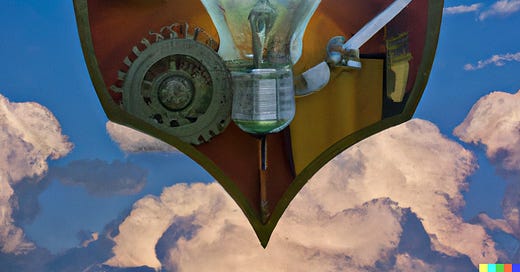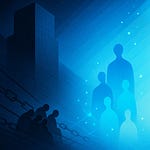In the past three years, I have shared my thoughts on how Hong Kong lost its freedom with my American friends, who often ask me how liberty is lost.
Liberty is more than just the absence of government control; it's the ability to think independently, challenge ideas, and pursue knowledge. It gives us the freedom to explore, innovate, and find solutions to the world's problems. But when these institutions are compromised, so too is our liberty. When knowledge is politicized, ideas are silenced, and the pursuit of knowledge is reduced to a commodity, our ability to think critically and challenge authority is diminished. We become passive consumers of information instead of active citizens.
The erosion of liberty is a slow and steady process that we first see in the decline of academic freedom, the rise of censorship, and the erosion of trust in science. Institutions of education and research have a responsibility to foster and protect this liberty.
Many Americans are acutely aware of liberty's erosion but view the danger differently. Conservatives see progressives, particularly on campuses, as a threat to traditional values, fearing suppressed free speech and indoctrination. Progressives worry about student debt, affordability, and higher education's failure to enable social mobility.
US higher education is collapsing, concerning all political sides. Critics argue that colleges fail to prepare people for evolving technology and markets, rendering college education an overpriced bubble. Universities, whether public or private, must deliver value on investment, or students will walk away. Many institutions struggle financially, while prestigious ones thrive on massive endowments.
Universities should advance our understanding of the unknown and expand our capability as a civilization. However, academics often publish papers to meet performance metrics instead of expanding human knowledge, and PhD candidates become cheap labor for tenured professors. Intolerance for differing opinions stifles debate and challenges to established views. The politicization of science replaces evidence-based research with ideologically driven studies.
Higher education once served as the most important check and balance against political authorities, with independent academics' opinions holding sway. Nowadays, academics' power to check the government has dwindled.
Restoring the institution of education and research is critical to preserving our liberty. This means fostering academic freedom, ensuring research is evidence-based, and valuing education as a fundamental right. We must invest in education and research, supporting institutions that promote critical thinking, scientific inquiry, and academic integrity. We must demand accountability from those institutions that fail to uphold these values.
If the current system is too broken to be fixed, we must build new institutions that will serve as a beacon of liberty and a lamp of knowledge for generations to come. The stakes are high. If we fail to restore the institution of education and research, we risk losing our ability to think independently, challenge authority, and pursue knowledge. We risk losing our liberty.















Share this post